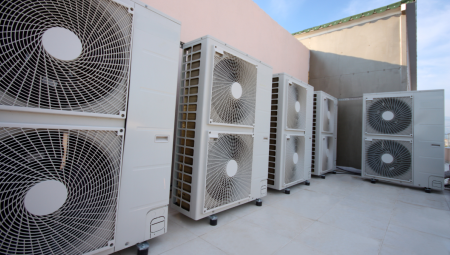International. NADCA, the HVAC Inspection, Cleaning and Restoration Association, announced the publication of a scientific paper developed in partnership with the Global Biohazard Advisory Council (GBAC), called "Biological Considerations on Air Quality for Non-Healthcare Environments, Such as Built Environments."
The document, funded by GBAC, addresses several strategies to improve indoor air quality in facilities and built environments, such as schools, restaurants, convention centers and gyms.
This document is designed to provide the measures that a facility must take into account to control the spread of infectious agents within its facilities, with particular concern for those that spread through air routes. Viruses or other infectious agents that are transmitted through small droplets and aerosols are considered airborne diseases. SARS-CoV-2, influenza, chickenpox, and measles are examples of airborne illnesses.
NADCA Chair and Board Chair Mark Zarzeczny, ASCS, CVI and Chair of NADCA's Scientific Advisory Board; Dr. Mark Hernandez, PhD, EP., along with a team of scientific and industry colleagues; contributed to the paper by several authors.
"I am very grateful for the opportunity to work with GBAC's scientific advisory board to develop their first published and peer-reviewed scientific paper," said Mark Zarzeczny. "The paper addresses airborne diseases, including the SARS-CoV-2 virus, and provides a multitude of science-backed options for improving indoor air quality in non-healthcare settings."
The article was published in GBAC-TIPS Journal, an open access journal founded by The Infection Prevention Strategy (TIPS) to promote innovations, ideas and processes that make a difference in global health. The paper will also be indexed in Google Scholar and ResearchGate so that the global scientific community can consult and cite it in future publications.
"It was a privilege for our scientific advisory board to work with NADCA on this multi-author paper that provides practical steps to make facilities safer during and after the pandemic," said Patricia Olinger, executive director of GBAC. "Achieving peer review and publication means that our paper has met standards of quality and importance to global health."
This comes just before the announcement by NADCA's own scientific advisory board, which was shared during the recent Annual Meeting and Expo in Aurora, Colorado. Led by Dr. Mark Hernandez, the advisory board will work alongside NADCA's scientific committee and Board of Directors to use research, science, and advocacy to advance the field.
The document "Biological Considerations on Air Quality for Non-Sanitary Environments, as Constructed" is available for download in https://infectioncontrol.tips/2022/02/10/biological-air-quality-considerations.















